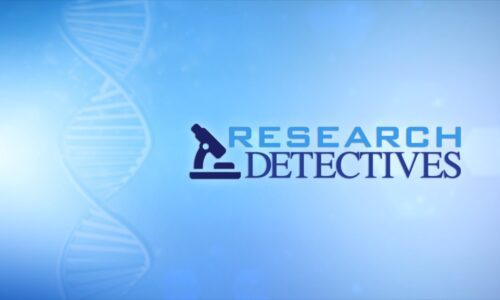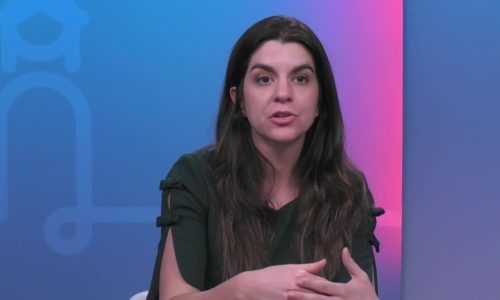How long can you wait to have a baby? | Smartlife
Should you wait to get pregnant? How long should you wait to have a baby, if your biological clock is ticking? Fertility can be mysterious for those wanting to get pregnant, especially for women who have delayed their pregnancy because of health reasons or career choices. Dr. Armando Hernandez-Rey, an Endocrinology & Infertility Specialist from Baptist Health South Florida, has your fertility and pregnancy answers.
Transcript
All right so more and more women are delaying pregnancy due to health reasons or maybe their work career some even consider fertility preservation that’s true and joining us to talk about this is dr armando hernandez ray a reproductive endocrinologist and infertility specialist with baptist health south florida welcome to smart life doctor thank you for the invitation oh we’re great we’re great to have you doctor help me out cause i’m probably not the brightest guy in the world but you know before we get into infertility what’s the uh the protocol well how old are girls when they become fertile or that have able have a baby well i’m going to try to answer it when they get their menstrual cycle that’s right okay okay yeah their fertility doesn’t doesn’t uh become or doesn’t peak until about 10 years after that when you say peak what do you mean because I know a girl that gets her period as we call it for short can’t get pregnant absolutely it’s just that their reproductive potential is hit between their in their mid-20s all right the maximum reproductive potential a lot of women are in in their early stages are immature they have a uh irregular periods they don’t ovulate regularly that was me yeah and I was a gymnast so I actually skipped a lot of my periods that was kind of normal because of the activity right that’s normal that’s normal and go ahead well here’s another kind of a question from a man are some women more fertile than other women ah yeah for sure I mean there’s so many different issues that can affect the woman’s fertility remember women are very complex certainly much more yeah i mean do you really think we are absolutely biologically too much I think it is much more than us men will ever be so there’s a lot of moving parts essentially and and any one of those can any one of those can get affected any period in time and so certainly yes there are women that are more for I have a I have a 21 year old menopausal due to a genetic abnormality and I have a 47 year old who delivered on with an artificial insemination those are the extremes and you’re seeing now doctor now that you brought up the ages and I was kind of late for my age i think well because also i’m hispanic so all my friends had had babies let’s just say that I was 35. so that was kind of like a little bit late but I see more and more women today waiting into their 40s and late 40s absolutely like you said in the introduction you know women are postponing their fertility for their professional and social pursuits and and personal pursuits and but if you wait till you’re 45 46 47 like that example do you become less fertile as you get older or is that just a misnomer I i would even uh redact that to say 34 35 36 and you’re after 37 your your your reproductive potential decreases significantly it does exponentially yes okay well my my wife was 37 so same thing a couple years old it’s you know it’s not that women don’t get pregnant after 37 it’s just that the the you know the potential for achieving a pregnancy becomes much less than a 27 for example so if that woman is trying let’s say and uh she can’t when is it time to say okay I gotta call the doctor uh because well I was you know I was a little bit neurotic but when everybody knows I am and I just wanted to be pregnant quickly but how long three months six months a year well the standard is usually if a woman is less than 35 years old to wait up to a year before seeking the the advice of of a reproductive endocrinologist um if she’s over 35 then six months six months okay six months you live in an instant gratification society so as you said and and generally women tend to like obscure the lines and come in earlier okay nowadays should if they’re the couple is trying really trying you have to test the man as well as testing the woman when it comes to infertility is that correct absolutely when I first started uh in fellowship uh male fertility accounted for about fifteen to twenty percent now uh the american college of ob gyn just posted a uh a new practice builds and it says that it can now accounts for about forty to fifty percent that much older guys are marrying again second time marriages and and you know uh I know that at 48 i’m certainly not as further as i was when I had my first child okay is it because the number is sperm or is it because the number one quality the quality of the sperm quality and how fast they go yeah it’s all it’s all linked together so stay stay healthy work out a lot to get those guys believe it or not it doesn’t really make a difference you know it doesn’t make it the aging factor plays a role in everything it’s called atrophy it happens to all of us that’s right into everything doctor um okay so let’s go back to the lady uh the woman who wants to get pregnant so she comes to see you uh you’re the specialist you’re the one that’s gonna help her out what do you need to know i’m assuming you’re gonna talk about family history what else gynecologic history medical history social history you know uh smoking alcohol abuse drugs those are factors those are definitely factors especially uh cocaine use now weed is not so much associated can have some effects um so yeah if a woman’s not ready at a particular time but she wants to freeze her eggs i’ve heard that they can actually do that yeah it’s it’s become very prevalent in in today’s world you know affordable too much more now than it was you know 10 years ago for sure uh the most expensive part of this now is the medications that they use to stimulate their their ovaries to to recruit the eggs that we can then later extract um it’s fairly reasonable a lot of the bigger companies like the apples the googles the starbucks are paying for it and part of their including that in their insurance policies because they want to they want to incentivize these employees that are high level uh and educated women to stay on absolutely I know you have a patient story of a haitian couple that you wanted to share with us uh tell us about it well that started the question from one of the producers was you know well are we you know we were talking about what’s what’s big in in the world of of uh infertility now and one of the one of the biggest things that’s come to light is the the ability for us to test embryos genetically before uh we transfer an embryo and I just recently had a patient uh they’re a haitian couple they both are carriers for sickle cell uh uh disease talk about what that is first sickle cell disease is a is a is a disease that affects the hemoglobin and in in in moments of stress in the person that’s affected uh stress uh disease etc they can have a crisis that can is potentially deadly and now we have the ability when when a couple when two couples when uh two members of the couple are carry or carriers they have a 25 chance of having a child that’s affected well we can now uh uh be able to identify the unaffected uh embryos and transfer those and leave the affected embryos aside and that’s what you did for this couple that’s right and they had a beautiful baby oh unaffected not even not even a carrier because you have a 25 chance of being normal that’s just wow amazing to be able to do that how do you feel when that happens I mean i just can only it’s a great job it’s really it’s a really great job it’s a great specialty and and i’m really fortunate to be doing it being able to do it here in south florida you may make people happy change their lives creating families good for the community you know it doesn’t always it doesn’t always work you know unfortunately we’re limited by some of the biological factors that are intervened but but for the most part we’ve been very successful in our practice and very happy to continue doing that what would you tell maybe someone out there who has been trying a long time I actually know someone and it’s been heart-wrenching don’t get lulled into a false sense of security that you can do it seek somebody’s help and and get some guidance and at least hear what your options are we want to hear another story but does it ever notice that the some couples try try trying nothing happens but when they stop trying next to you know boom she’s pregnant is it stress factor or is it uh you know uh who knows nobody knows how I think it’s possibly also just a statistical phenomena that occurs you know uh when you put your guard down maybe uh you know yeah maybe maybe all those things are involved well I remember I took clomid which is a um it’s a fertility induced ovulation right it basically wants like the sperm to come to the egg quicker right it just makes them happier together or something like that no it just recruits more eggs or in women who don’t ovulate helps them to like in polycystic ovarian syndrome which is very common in south florida it helps them recruit an egg and ovulate when they don’t normally do that on their own exactly and I was obviously very happy because three months later shazam there was samantha and then I did it again and there was daniela perfect I guess it worked and then I did it again no I didn’t he said stop I was done but you didn’t stop practicing did you great story by the way thank you doctor for your time pleasure thank you so much up next we’re going to hear one woman’s traumatic experience with plastic surgery that left her deformed for 16 years how she coped and who helped her still to come.












